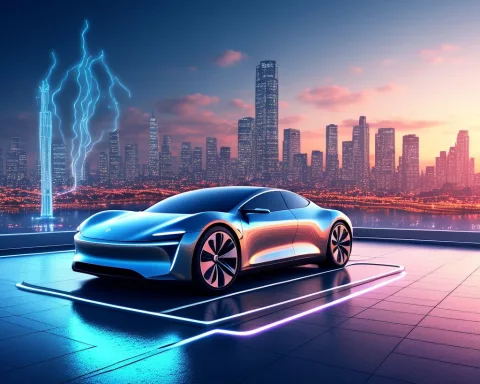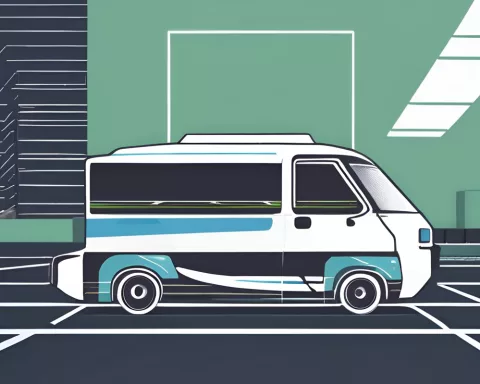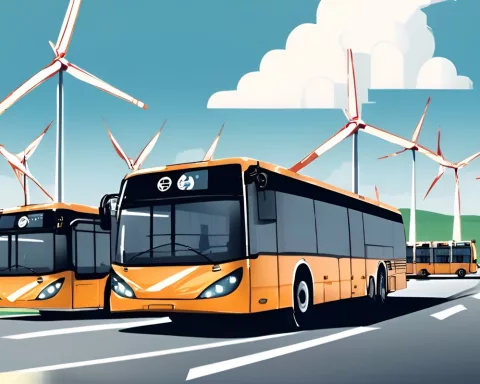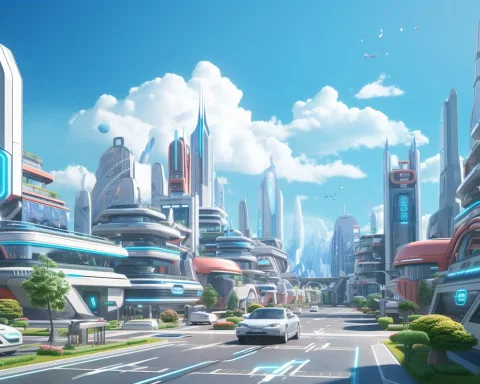Cape Town is taking impressive steps towards embracing green transportation, with a focus on the MyCiTi programme and incorporating 30 electric buses in Phase 2A. The city has allocated R668 million to MyCiTi buses in the next three years and plans to electrify its entire vehicle fleet, including waste collection trucks, light delivery vehicles, sedans, and hatchbacks. This approach is part of a broader goal to convert the entire vehicle fleet to electric power and achieve carbon neutrality by 2050. The city’s initial step towards electrification was a successful pilot project involving five fully electric BMW i3s for the Traffic Services Department.
What is Cape Town’s approach towards electric vehicles?
Cape Town is committed to adopting greener transportation alternatives, starting with the MyCiTi programme and incorporating 30 electric buses in its Phase 2A expansion. The city has allocated R668 million to MyCiTi buses in the next three years and plans to electrify its entire vehicle fleet, including waste collection trucks, light delivery vehicles, sedans, and hatchbacks. The initial steps towards electrification were taken in 2020 with a pilot project involving five fully electric BMW i3s for the Traffic Services Department.
Adopting an environmentally conscious perspective, Cape Town is making significant strides towards embracing electric vehicles. The city’s emphasis is strategically directed towards the MyCiTi programme, with the aim of incorporating 30 electric buses. This initiative signifies a crucial step in the city’s journey to integrate greener transportation alternatives.
Rob Quintas, the Urban Mobility Mayoral Committee Member of the city, disclosed this eco-friendly strategy as a component of the MyCiTi Phase 2A expansion. This expansion has been designed to form convenient transit links between Khayelitsha, Mitchells Plain, Claremont, and Wynberg. Managed by the Cape Town Urban Mobility Directorate, the tender for the electric buses is planned to close in mid-July, signifying a swift acceleration towards Cape Town’s electric vision.
This initiative is not a standalone effort, but rather a fragment of a broader financial commitment.
Extensive Budget Allocation for Eco-Friendly Transport
The fiscal plan of the city for 2024/25, released last month, designates R668 million to the MyCiTi buses in the next three years. In a broader context, around R6.3 billion has been allocated for the MyCiTi south-east expansion during the same timeframe. This substantial expenditure emphasizes the city’s commitment to the MyCiTi programme, ensuring sufficient funding for the fare collection system and control centre.
However, Cape Town’s electric aspirations are not confined to buses. Theresa Uys, the Mayoral Committee Member for Corporate Services, announced that the city is contemplating electrifying other segments of its vehicle fleet too. This includes waste collection trucks, light delivery vehicles, sedans, and hatchbacks. This approach is in line with the city’s long-term goal of converting its entire vehicle fleet to electric power, aiming for carbon neutrality by 2050.
The Initial Steps Towards Electrification
Cape Town embarked on its electrification journey in 2020 with a pilot project that involved the acquisition of five fully electric BMW i3s for the Traffic Services Department. These electric vehicles were meant to replace the Golf GTIs, which had an average annual mileage of 50,000 km. Even though these vehicles were less utilized than their internal combustion engine equivalents, the city considered the pilot successful, demonstrating the cost-effectiveness of electric vehicles.
Unquestionably, Cape Town’s entry into the world of electric transportation is not an isolated event. Electric buses are being planned for deployment across the nation.
National Drive Towards Electric Transportation
For instance, by the end of 2025, the Development Bank of South Africa is financing the deployment of 39 electric buses in Tshwane and eThekwini, bolstering the countrywide movement towards electrification.
Even though electric vehicles and hybrids currently constitute a minor part of new car sales in South Africa, they are progressively gaining ground. In 2023, these vehicles made up 1.45% of the new car sales, breaking the 1% barrier for the first time – an encouraging indication for the future of electric transportation in the country. Sales of hybrid vehicles were noticeably seven times greater than that of electric vehicles, hinting at a rising market acceptance for these eco-friendly options.
This emerging trend is being nurtured by significant investments in electric vehicle charging infrastructure by companies such as Gridcars and Zero Carbon Charge. These initiatives are vital in encouraging the adoption and usage of electric vehicles, thereby supporting Cape Town – and the entire country – in moving towards a more sustainable future.
What vehicles will Cape Town electrify?
Cape Town plans to electrify its entire vehicle fleet, including waste collection trucks, light delivery vehicles, sedans, and hatchbacks. This initiative is part of the city’s goal to achieve carbon neutrality by 2050.
How much money has Cape Town allocated for MyCiTi buses?
Cape Town has allocated R668 million to MyCiTi buses in the next three years. The fiscal plan for 2024/25 designates this amount for the MyCiTi buses, and around R6.3 billion has been allocated for the MyCiTi south-east expansion during the same timeframe.
What was Cape Town’s initial step towards electrification?
Cape Town’s initial step towards electrification was a successful pilot project involving five fully electric BMW i3s for the Traffic Services Department. These electric vehicles were meant to replace the Golf GTIs, demonstrating the cost-effectiveness of electric vehicles.
What is the national drive towards electric transportation in South Africa?
South Africa is making significant strides towards adopting greener transportation alternatives, including electric buses. For instance, the Development Bank of South Africa is financing the deployment of 39 electric buses in Tshwane and eThekwini by the end of 2025, bolstering the countrywide movement towards electrification.
What is the market acceptance for electric and hybrid vehicles in South Africa?
Electric and hybrid vehicles currently constitute a minor part of new car sales in South Africa. However, in 2023, these vehicles made up 1.45% of the new car sales, breaking the 1% barrier for the first time. Sales of hybrid vehicles were noticeably seven times greater than that of electric vehicles, hinting at a rising market acceptance for these eco-friendly options.
What companies are investing in electric vehicle charging infrastructure in South Africa?
Companies such as Gridcars and Zero Carbon Charge are investing in electric vehicle charging infrastructure in South Africa. These initiatives are vital in encouraging the adoption and usage of electric vehicles, thereby supporting Cape Town and the entire country in moving towards a more sustainable future.












